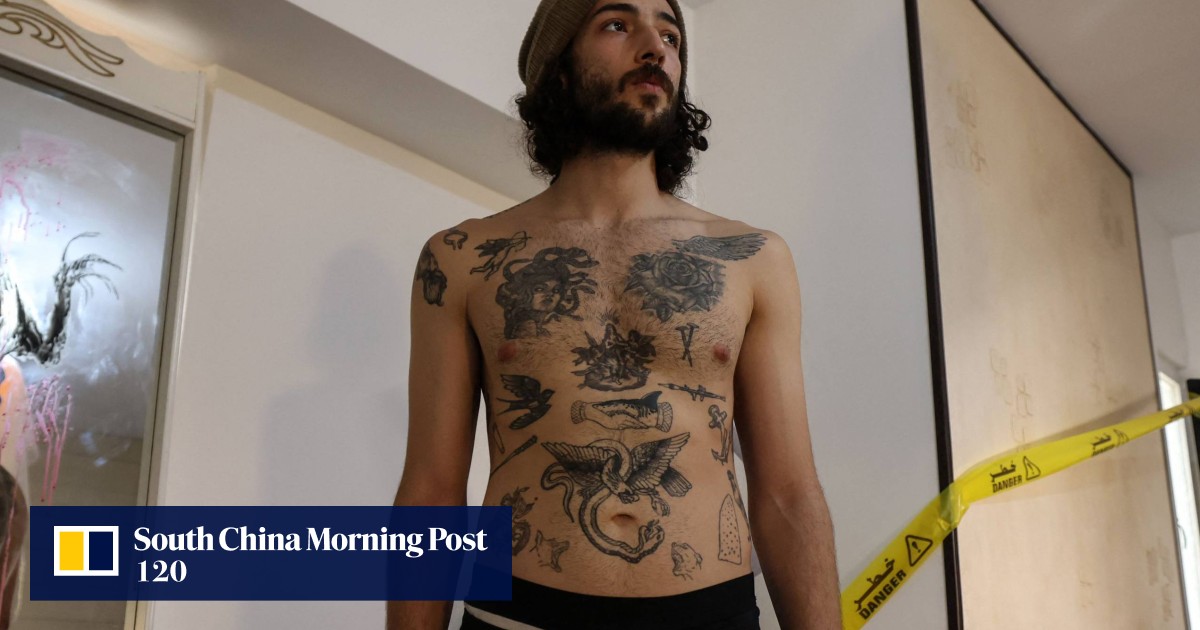Seeing the growing trend, Sean opened other studios in the southeastern city of Kerman and on the resort island of Kish.
Now he has more than 30 students eager to learn the craft, which he describes as a “bottomless art”.
“All sorts of people now are doing tattoos,” said Sean, who has been a tattoo artist for 17 years.
Her tattoos of Hong Kong and Chinese culture hit home for Asians overseas
Her tattoos of Hong Kong and Chinese culture hit home for Asians overseas
In the past, he said, “people wanted something small, simple, that no one can see, but now they’re saying, ‘Ink me up.’”
“Tattooing is not forbidden, provided that it does not promote non-Islamic culture,” according to the website of Iran’s supreme leader, Ayatollah Ali Khamenei.
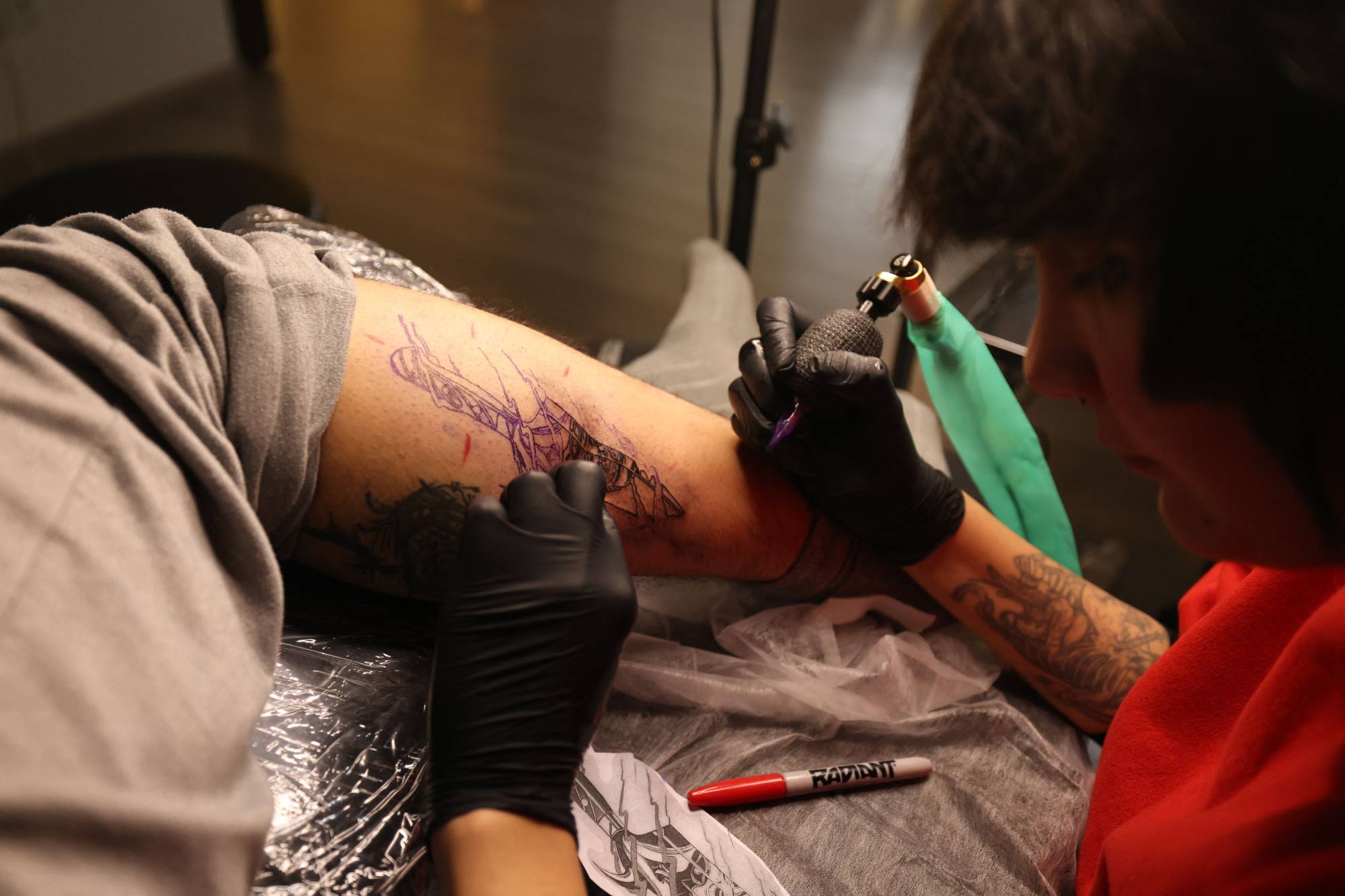
Despite the growing acceptance, there are still some in Iran who frown upon the practice.
In September last year, Iran’s volleyball federation said players must cover any tattoos or risk being barred from taking part in the 2022-2023 season.
Several prominent football players have been summoned by Iran’s sports morality committee in recent years for displaying their tattoos.
In 2019, a Tehran police official said having “visible and unconventional tattoos” may require individuals to undergo a “psychological examination” before obtaining a driving licence.
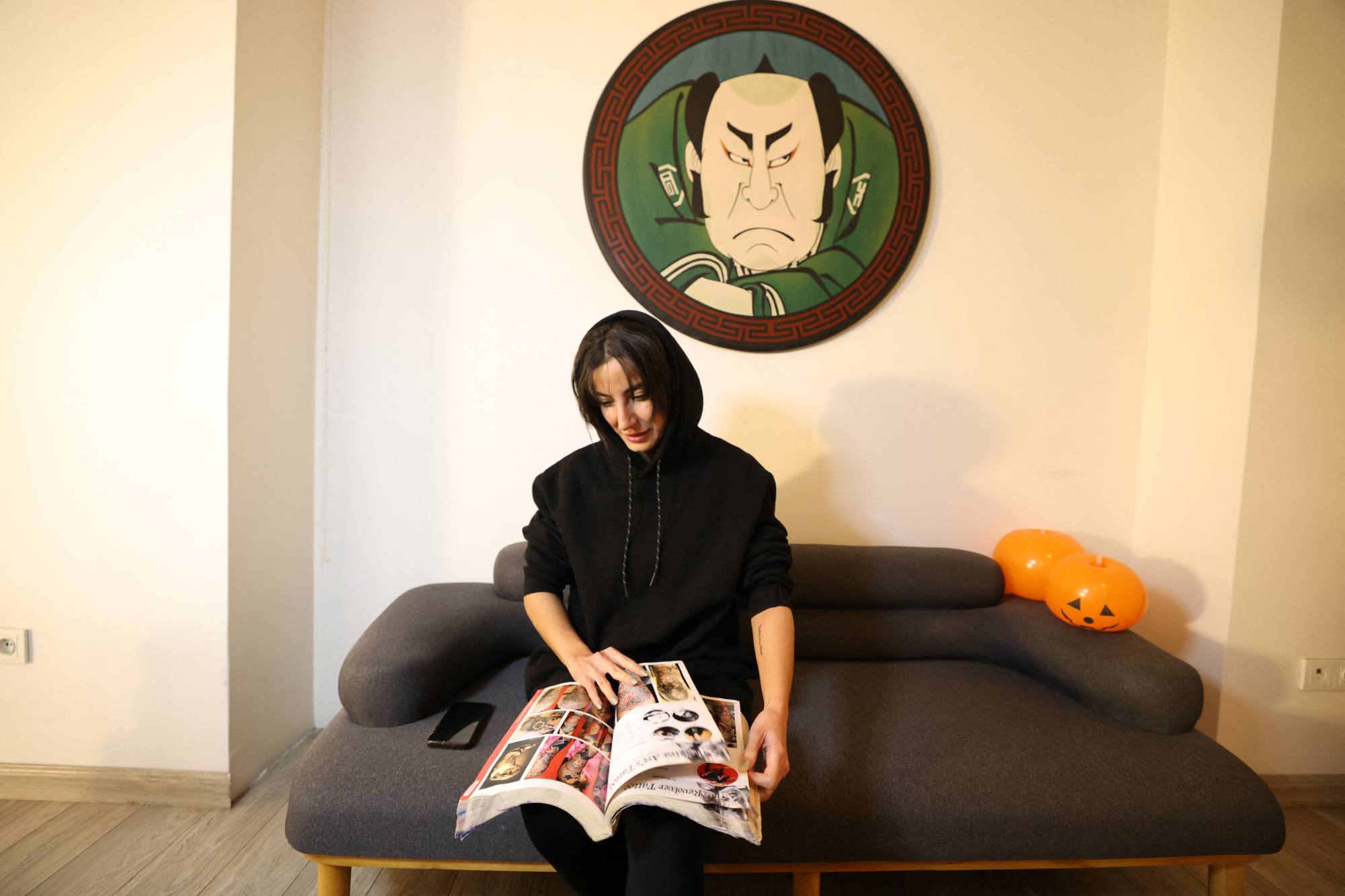
Others faced arrest, including in 2016, when authorities rounded up a “tattoo gang” for allegedly tattooing “satanic and obscene symbols” on people, as reported by the Tasnim news agency.
“Tattoos are not a crime on their own, but you will be stigmatised as a thug should something happen” like being arrested, he added.
‘I felt I had become my true self’: Okinawa’s indigenous body art is back
‘I felt I had become my true self’: Okinawa’s indigenous body art is back
Sean says he is aware of the conservative societal and cultural perceptions in Iran, aspects he has conscientiously addressed within his studios.
“Women [artists] do tattoos for women, men [artists] do tattoos for men,” he said.
In Iran, women with tattoos face more intense scrutiny than their male counterparts, forced to adhere to a stringent dress code that mandates covering their heads and necks.
Some see having tattoos as an act of defiance.
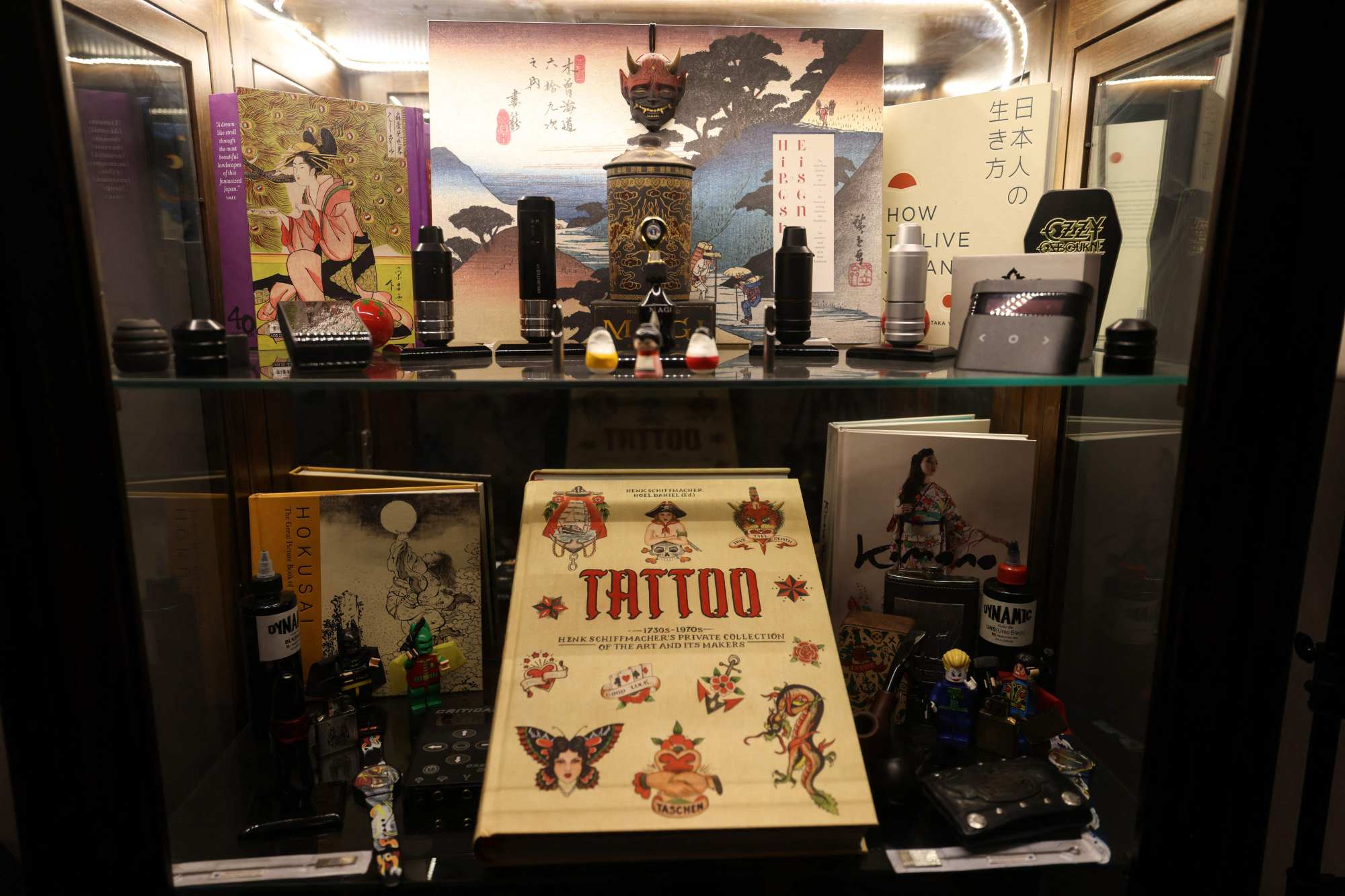
A 22-year-old Iranian Kurd, Amini had been arrested in September 2022 for allegedly violating the Islamic republic’s strict dress code for women.
Others only see tattoos as a form of self-expression.
“I like tattoos a lot and I wanted to express my thoughts that way,” says Sahar, a 26-year-old nurse who has a tattoo on her arm reading “do not be afraid of anything” in Arabic.
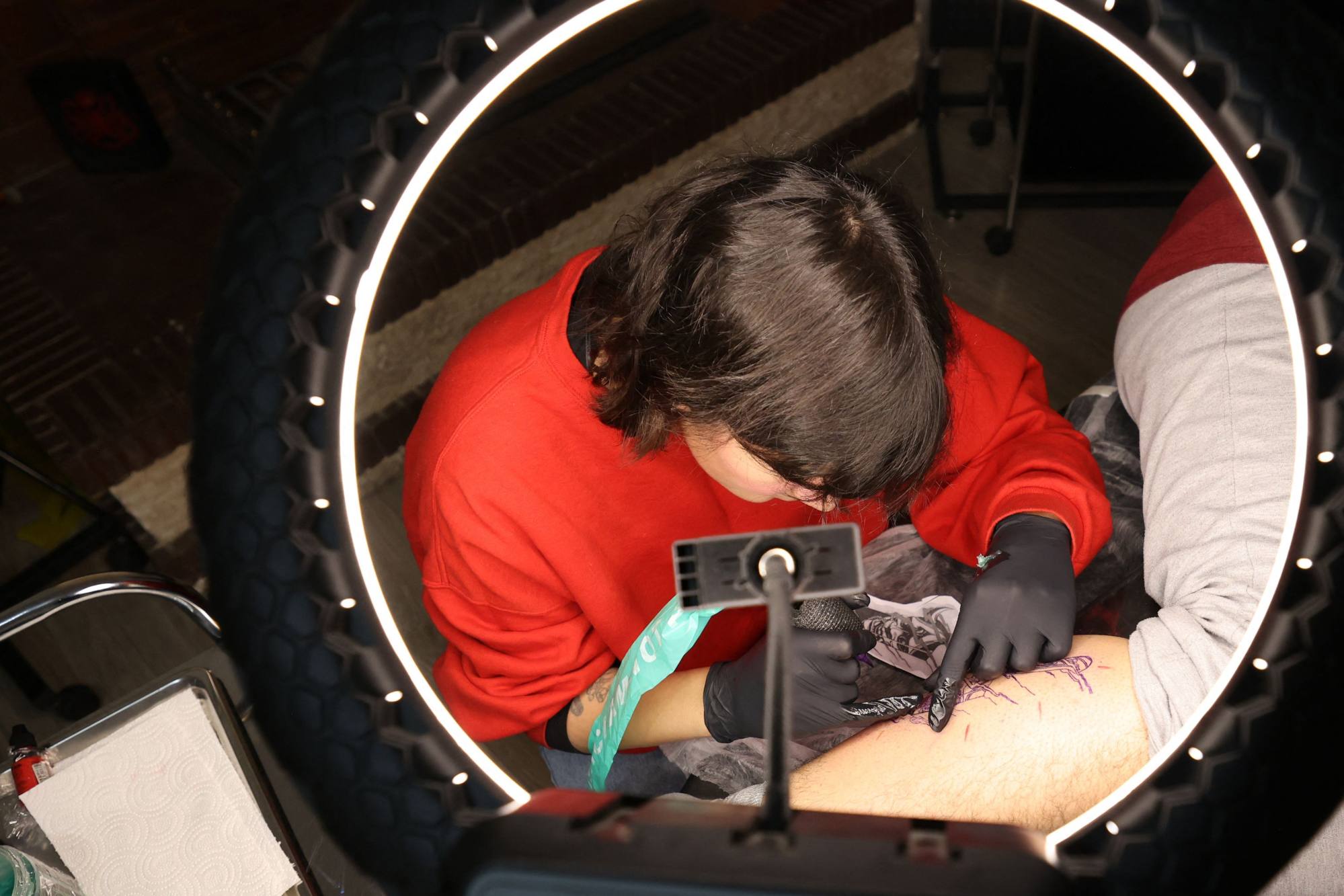
But she acknowledges that having tattoos “is likely [to cause problems], especially if you want to work in the public sector”.
Undeterred by the challenges, Kuro, a 24-year-old student at the studio, remains steadfast in her determination to practice her craft.
“Now people are generally more supportive,” she said after touching up a Koi fish design etched on a silicon sheet.
She hopes that “as a woman tattoo artist, I will be able to work without restrictions”.
